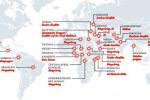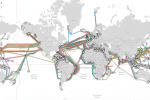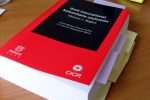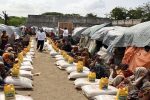Highlighting ‘positive impact’ of migration key to changing policies, public opinion un envoy
04/28/2017. Recognizing that the issue of large movements of refugees and migrants is too vast for any one country to handle on its own, the United Nations convened a meeting of world leaders in September 2016 with the aim of finding durable solutions.
At the summit, all 193 Member States came together around one plan, the New York Declaration, expressing their political will to save lives, protect rights and share responsibility on a global scale.
As a follow-up to the meeting, Secretary-General António Guterres last month appointed Canadian lawyer, prosecutor and jurist Louise Arbour as his Special Representative for International Migration.
Ms. Arbour – who has served as UN High Commissioner for Human Rights and Chief Prosecutor of the International Criminal Tribunals for the former Yugoslavia and Rwanda – is tasked with working with Member States as they develop a first-ever global compact for safe, orderly and regular migration, which is due to be adopted in 2018.
Read more …
|












